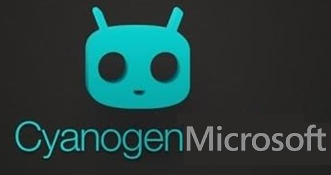

LAST MONTH we wrote about speculations that Microsoft is about to buy Cyanogen. We wrote a lot about Cyanogen prior to this, noting that Microsoft was using Cyanogen to disrupt (as in interfere) with Android using words and actions. OnePlus dumped CyanogenMod very soon afterwards because it had developed and quickly turned to its own version of Android (not a Microsoft proxy) and according to this new article, despite OnePlus moving away from Cyanogen, this Microsoft proxy (CyanogenMod) keeps trying to embed itself in OnePlus phones. Users of OnePlus (or owners of such devices) should be smarter than this. They ought to avoid any of CyanogenMod altogether. Cyanogen became a Microsoft proxy that harms users in many ways as we've explained over the past month.
"Remember that Replicant is based on Android, perpetually living in coexistence."Microsoft does not need to bribe/buy Cyanogen if it can get friends to 'invest' in it and then pump money (bundling "deal") to pay these friends back through Cyanogen. This seems like a clever passage of payments. Cyanogen is inherently destroyed. It's like Nokia, Yahoo, Novell and so on after their Microsoft deals.
The story of Microsoft and Android/Linux/Free software is very much like that of "The Scorpion and the Tortoise". The 'new Microsoft' -- if there was ever such a thing -- learned to champion entryism, patent lawsuits by proxy, FUD by proxy, bribery, and lobbying. Do not believe for a second that Microsoft means well or comes in peace. It has become exceedingly obvious that disruption of Free software (Android for example) is the strategy of choice, not creating better products. There is also a lot of incitation, e.g. accusations of monopoly by Google. Microsoft manufactured several lawsuits over the years, aggravating and publicly vilifying Android backers, developers, etc. Android has been wrongly viewed as a destroyer of competing Linux-based mobile environments, but it can be complementary (for desktops too). Inciting GNU/Linux users -- not just politicians and proprietary software users -- against Android seems to have been one rather clever strategy against a leading platform that eats Microsoft's lunch (cow cash). AOSP, Alien Dalvik, ARC Welder etc. dispel many villainous myths about Android as "bad" for GNU/Linux, despite it being a step in a good direction (not ideal, but at least good). Remember that Replicant is based on Android, perpetually living in coexistence. As long as Android is doing well, Replicant and F-Droid will be fine. ⬆